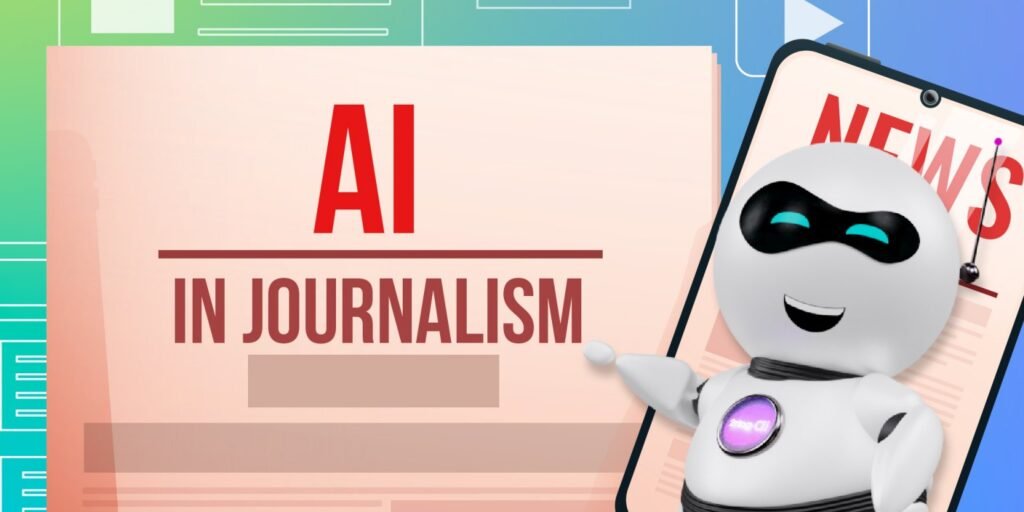In the rapidly evolving field of healthcare, leveraging technology is crucial to improving patient outcomes and operational efficiency. Artificial Intelligence (AI) analytics is at the forefront of this technological revolution, offering powerful tools to analyze complex data, predict outcomes, and support clinical decisions. This article explores how AI analytics is transforming healthcare, providing actionable insights for healthcare providers and stakeholders looking to enhance patient care and streamline operations.
Understanding AI Analytics in Healthcare
The Role of AI in Transforming Healthcare
AI analytics is fundamentally changing the landscape of healthcare by providing tools that can analyze vast amounts of data with unprecedented speed and accuracy. This transformation is not just about efficiency; it’s about unlocking new ways to diagnose, treat, and prevent illnesses. For startup founders, understanding this potential can help in crafting innovative solutions that address current gaps in healthcare delivery.
AI analytics can process complex datasets from various sources, such as electronic health records (EHRs), medical imaging, genomic data, and even wearable devices. This ability to integrate and analyze diverse data streams enables a more holistic view of patient health, facilitating better decision-making and personalized care.
Strategic Benefits for Startup Founders
For startup founders, leveraging AI in healthcare analytics offers several strategic advantages. Firstly, AI can significantly reduce the time and cost associated with data analysis. Traditional methods of data processing can be labor-intensive and slow, but AI automates these processes, delivering insights rapidly. This speed can be crucial in clinical settings where timely decisions can save lives.
Moreover, AI’s predictive capabilities can help startups develop proactive healthcare solutions. By predicting disease outbreaks, patient deterioration, or treatment outcomes, AI allows healthcare providers to intervene earlier, improving patient outcomes and reducing healthcare costs. Startups that integrate predictive analytics into their offerings can position themselves as leaders in proactive health management.
Key Areas of AI Application in Healthcare

AI’s application in healthcare is vast, but several key areas offer significant opportunities for startups to innovate and make an impact.
Diagnostic Imaging
One of the most promising areas for AI in healthcare is diagnostic imaging. AI algorithms can analyze medical images such as X-rays, MRIs, and CT scans with high accuracy, identifying anomalies that might be missed by human eyes. This capability is particularly useful in detecting cancers, neurological disorders, and cardiovascular diseases early.
For startups, developing AI-powered imaging tools can provide substantial value. These tools can assist radiologists in diagnosing conditions more quickly and accurately, ultimately leading to better patient outcomes. Additionally, startups can focus on creating solutions that integrate seamlessly with existing imaging equipment, ensuring easy adoption in clinical settings.
Genomic Analysis
AI’s ability to process and analyze large-scale genomic data is transforming personalized medicine. By identifying genetic markers associated with diseases, AI can help tailor treatments to individual patients, increasing the effectiveness of interventions and reducing side effects.
Startups can explore developing AI platforms that facilitate genomic analysis for personalized treatment plans. These platforms can help oncologists determine the best chemotherapy regimens based on a patient’s genetic profile or assist in identifying patients who may benefit from emerging therapies. The strategic advantage here lies in the ability to offer precision medicine solutions that improve patient outcomes and reduce trial-and-error in treatments.
Remote Patient Monitoring
The integration of AI with wearable technology and remote monitoring devices enables continuous health tracking, providing real-time insights into a patient’s health status. This continuous monitoring can detect early signs of health deterioration, allowing for timely interventions and better chronic disease management.
Startups can capitalize on this trend by creating AI-driven remote monitoring solutions that offer comprehensive health tracking and predictive analytics. These solutions can alert healthcare providers to potential issues before they become critical, improving patient care and reducing hospital readmissions. The strategic focus should be on developing user-friendly interfaces and ensuring data security and privacy.
Data Integration and Interoperability
One of the critical challenges in healthcare is data integration and interoperability. Healthcare data is often siloed across different systems and platforms, making it difficult to get a comprehensive view of a patient’s health. AI can help overcome this challenge by integrating data from various sources, ensuring that healthcare providers have access to complete and accurate patient information.
For startup founders, focusing on AI solutions that enhance data integration and interoperability can provide a competitive edge. Developing platforms that aggregate data from EHRs, wearable devices, and other health information systems can offer healthcare providers a unified view of patient health, leading to better coordinated and more effective care.
Ethical Considerations and Data Security
While AI offers tremendous potential in healthcare, it also raises ethical considerations, particularly regarding data privacy and security. Healthcare data is highly sensitive, and any breach can have severe consequences for patients and healthcare providers.
Startup founders must prioritize data security in their AI solutions, implementing robust encryption, access controls, and compliance with regulations such as HIPAA (Health Insurance Portability and Accountability Act). Additionally, transparency in how AI models use and process data is crucial to building trust with users.
Investing in AI ethics and governance frameworks can also be a strategic move. This involves ensuring that AI models are free from biases, transparent in their decision-making processes, and aligned with the ethical standards of healthcare. By addressing these considerations, startups can differentiate themselves as responsible and trustworthy players in the healthcare industry.
Collaboration with Healthcare Providers
Successful implementation of AI in healthcare requires collaboration with healthcare providers. Startups should engage with doctors, nurses, and other healthcare professionals to understand their needs and challenges. This collaboration can ensure that AI solutions are user-centric and address real-world problems effectively.
For instance, co-developing AI tools with healthcare providers can lead to solutions that fit seamlessly into clinical workflows, enhancing their usability and adoption. Building partnerships with hospitals, clinics, and research institutions can also provide valuable data and insights to refine AI models and improve their accuracy and relevance.
Scalability and Flexibility
Scalability and flexibility are crucial for AI solutions in healthcare. Startups should design their AI platforms to handle increasing amounts of data and integrate new functionalities as technology evolves. This scalability ensures that the solutions remain relevant and effective as the healthcare landscape changes.
Flexibility in AI solutions allows them to be customized for different healthcare settings and requirements. Startups can focus on modular AI platforms that can be tailored to specific needs, whether it’s a small clinic or a large hospital network. This adaptability can expand the market reach and applicability of AI solutions.
Key Applications of AI Analytics in Healthcare

Predictive Analytics for Patient Outcomes
Predictive analytics uses historical data to predict future events. In healthcare, this means forecasting patient outcomes, identifying high-risk patients, and predicting disease progression. For instance, AI algorithms can analyze patient data to predict the likelihood of readmission, enabling healthcare providers to implement preventive measures and reduce readmission rates.
For example, a hospital might use predictive analytics to identify patients at high risk of developing complications after surgery. By closely monitoring these patients and providing targeted interventions, the hospital can improve recovery rates and reduce the incidence of complications.
Enhancing Diagnostic Accuracy
One of the most significant benefits of AI analytics in healthcare is its ability to enhance diagnostic accuracy. AI algorithms can analyze medical images, lab results, and patient records to detect diseases early and accurately. This is particularly valuable in fields such as radiology, pathology, and dermatology, where precise diagnosis is crucial.
For instance, AI-powered tools can analyze mammograms to detect breast cancer at an early stage, often with greater accuracy than human radiologists. This early detection allows for timely treatment, significantly improving patient outcomes.
Personalizing Treatment Plans
Every patient is unique, and treatment plans should reflect this individuality. AI analytics can help personalize treatment by analyzing a patient’s genetic information, medical history, and lifestyle factors. This personalized approach ensures that patients receive the most effective treatments tailored to their specific needs.
For example, in oncology, AI can analyze genetic data to recommend personalized chemotherapy regimens that are most likely to be effective for a particular patient. This precision medicine approach improves treatment outcomes and reduces the likelihood of adverse effects.
Optimizing Hospital Operations
AI analytics is not just limited to clinical applications; it also plays a vital role in optimizing hospital operations. By analyzing data on patient flow, bed occupancy, and resource utilization, AI can help hospitals improve efficiency and reduce costs.
For instance, AI can predict peak times for patient admissions, allowing hospitals to allocate staff and resources more effectively. It can also analyze surgical schedules to minimize waiting times and ensure optimal use of operating rooms.
Enhancing Patient Monitoring
AI analytics can significantly improve patient monitoring, both in hospital settings and through remote health monitoring systems. By continuously analyzing data from wearable devices and sensors, AI can detect early signs of deterioration in a patient’s health, enabling timely interventions.
For example, AI-driven monitoring systems can track vital signs such as heart rate, blood pressure, and oxygen levels in real-time. If these metrics fall outside of the normal range, the system can alert healthcare providers, allowing them to respond quickly. This proactive approach can prevent complications and improve patient outcomes, especially for those with chronic conditions.
Supporting Clinical Decision-Making
AI analytics provides valuable support for clinical decision-making by offering evidence-based recommendations. By analyzing vast amounts of medical literature, clinical trial data, and patient records, AI can help healthcare providers make more informed decisions about diagnosis and treatment.
For instance, AI can assist doctors in choosing the best course of treatment for complex cases by comparing the patient’s condition with similar cases in the database. It can suggest potential treatments that have been effective in other patients with similar conditions, thus enhancing the quality of care.
Streamlining Administrative Tasks
Administrative tasks in healthcare, such as billing, scheduling, and documentation, can be time-consuming and prone to errors. AI analytics can streamline these processes, improving efficiency and reducing the administrative burden on healthcare providers.
For example, AI-powered scheduling systems can optimize appointment scheduling, ensuring that resources are used efficiently and that patients receive timely care. AI can also automate the processing of insurance claims, reducing the time and effort required to manage billing and reimbursement.
Improving Population Health Management
Population health management involves analyzing data from various sources to improve the health outcomes of a specific population. AI analytics can identify trends, track disease outbreaks, and evaluate the effectiveness of public health interventions.
For example, AI can analyze data from electronic health records, social determinants of health, and environmental factors to identify communities at high risk for certain diseases. Public health officials can use this information to target interventions, allocate resources effectively, and monitor the impact of their efforts.
Implementing AI Analytics in Healthcare
Choosing the Right AI Tools
Selecting the appropriate AI tools is crucial for successfully implementing AI analytics in healthcare. There are numerous AI platforms and solutions available, each with different features and capabilities. When choosing AI tools, consider factors such as ease of use, integration with existing systems, and scalability.
For example, if your goal is to enhance diagnostic accuracy, look for AI tools that specialize in medical image analysis and have a proven track record in clinical settings. If your focus is on optimizing hospital operations, choose tools that can analyze operational data and provide actionable insights.
Ensuring Data Quality and Security
High-quality, accurate data is the foundation of effective AI analytics. Ensure that your data is clean, well-organized, and up-to-date. Implement robust data management practices to maintain data integrity and prevent errors.
Data security is also a critical concern in healthcare. Ensure that your AI systems comply with data protection regulations such as HIPAA (Health Insurance Portability and Accountability Act). Implement strong security measures to protect patient data from breaches and unauthorized access.
Training and Development
Implementing AI analytics requires a skilled workforce with expertise in data science, machine learning, and healthcare. Invest in training and development to build the necessary skills within your organization. Consider hiring external experts or partnering with technology providers to provide additional support.
For example, offer training programs for healthcare providers to help them understand how to use AI tools effectively and interpret the insights they generate. Encourage continuous learning and stay updated on the latest advancements in AI and healthcare analytics.
Integrating AI into Clinical Workflows
To maximize the benefits of AI analytics, it’s essential to integrate AI tools seamlessly into clinical workflows. This means embedding AI-driven insights into everyday decision-making and operations.
Start by identifying key areas where AI can add value, such as diagnosis, treatment planning, and patient monitoring. Develop workflows that incorporate AI-generated insights to guide actions and decisions. For example, use AI to analyze patient data and provide recommendations for personalized treatment plans, or leverage AI-driven monitoring systems to track patient health in real-time.
It’s also important to ensure that healthcare providers are comfortable using AI tools. Provide ongoing support and training to help employees understand how to interpret AI insights and integrate them into their workflows. Regularly review and refine your processes to ensure that AI tools are being used effectively and that they are delivering the desired outcomes.
Monitoring and Optimizing AI Performance
Implementing AI in healthcare is an ongoing process that requires continuous monitoring and optimization. Regularly assess the performance of your AI tools to ensure they are delivering accurate and actionable insights. Use key performance indicators (KPIs) to track the impact of AI on healthcare outcomes, such as improved diagnostic accuracy, reduced readmission rates, and enhanced patient satisfaction.
For example, if you are using AI to predict patient readmissions, compare the AI-generated predictions with actual readmission rates to evaluate the model’s accuracy. Gather feedback from healthcare providers on the usability and effectiveness of AI tools and make necessary adjustments.
Optimization also involves staying updated with the latest advancements in AI technology. Continuously explore new tools and techniques that can enhance your healthcare analytics capabilities. By regularly monitoring and optimizing AI performance, you can ensure that your AI initiatives remain effective and aligned with your healthcare goals.

Related: Check out our free tools:

Real-World Applications of AI in Healthcare Analytics
Case Study: Predictive Analytics for Chronic Disease Management
A healthcare provider implemented AI-driven predictive analytics to improve the management of chronic diseases such as diabetes and heart disease. By analyzing patient data, including medical history, lab results, and lifestyle factors, the AI tool identified patients at high risk of complications.
This predictive capability allowed healthcare providers to develop personalized care plans and interventions for high-risk patients. For example, patients identified as high-risk for diabetes complications received tailored dietary advice, medication adjustments, and regular follow-up appointments. As a result, the healthcare provider saw a significant reduction in hospital admissions and improved patient outcomes.
Case Study: Enhancing Radiology with AI
A hospital adopted an AI-powered radiology tool to assist radiologists in interpreting medical images. The AI tool analyzed X-rays, CT scans, and MRIs to detect abnormalities such as tumors, fractures, and infections. By providing a second opinion, the AI tool enhanced the accuracy of radiologists’ diagnoses.
The hospital found that the AI tool improved diagnostic accuracy, reduced the time required to analyze images, and helped detect conditions that might have been missed by human radiologists. This led to earlier diagnoses and better treatment outcomes for patients.
Case Study: Optimizing Hospital Operations
A large healthcare system used AI analytics to optimize its operations and improve efficiency. By analyzing data on patient flow, bed occupancy, and staff utilization, the AI tool provided insights into how resources could be better allocated.
For example, the AI tool predicted peak times for patient admissions and recommended adjustments to staff schedules and resource allocation. It also identified bottlenecks in patient flow and suggested process improvements. These insights allowed the healthcare system to reduce wait times, improve patient satisfaction, and lower operational costs.
Case Study: Personalizing Cancer Treatment
An oncology center implemented AI analytics to personalize cancer treatment plans. By analyzing genetic data, medical history, and treatment outcomes, the AI tool provided recommendations for the most effective chemotherapy regimens for individual patients.
The AI tool helped oncologists select treatments that were more likely to be effective and had fewer side effects. This personalized approach improved patient outcomes and reduced the trial-and-error approach often associated with cancer treatment.
Future Trends in AI Analytics for Healthcare
AI-Driven Predictive Healthcare
Predictive healthcare using AI analytics is set to become a cornerstone of proactive health management. By analyzing patient data, lifestyle factors, and genetic information, AI can predict the likelihood of diseases and suggest preventive measures. This shift from reactive to preventive healthcare can significantly reduce the incidence of chronic diseases and improve overall health outcomes.
For startup founders, investing in AI-driven predictive healthcare tools can open new avenues for patient engagement and care delivery. Developing platforms that integrate wearable devices, genetic testing, and lifestyle data can provide a comprehensive health profile for users.
This data can be used to offer personalized health advice, monitor adherence to preventive measures, and alert healthcare providers to potential health issues before they become critical.
Personalized Medicine and Genomics
AI is revolutionizing the field of personalized medicine by analyzing genetic data to tailor treatments to individual patients. This approach ensures that patients receive therapies that are most effective for their genetic makeup, reducing trial-and-error in treatment and improving outcomes.
Startups can focus on creating AI platforms that facilitate personalized medicine by integrating genomic data with clinical data. These platforms can assist healthcare providers in selecting the best treatment plans based on a patient’s genetic profile. Additionally, startups can develop AI tools that predict how patients will respond to different medications, helping to avoid adverse reactions and optimize therapy.
Advanced Robotics in Surgery
Robotic surgery has been enhanced by AI, providing greater precision, flexibility, and control during surgical procedures. AI-powered robots can assist surgeons by providing real-time data analysis, predictive outcomes, and enhanced visualizations.
For startups, the development of AI-driven robotic surgical systems can be a game-changer. These systems can be designed to assist in minimally invasive procedures, reducing recovery times and improving surgical outcomes. Startups can also focus on integrating AI to enhance the learning and adaptation capabilities of robotic systems, enabling them to handle complex surgeries with greater accuracy.
AI-Powered Mental Health Support
Mental health is a critical area where AI analytics can make a significant impact. AI-driven platforms can analyze data from various sources, such as social media, wearable devices, and patient interactions, to identify signs of mental health issues early. These platforms can provide timely interventions, personalized therapy plans, and continuous support.
Startup founders can explore the development of AI-powered mental health apps that offer personalized cognitive behavioral therapy (CBT), mood tracking, and real-time support.
By leveraging natural language processing (NLP) and sentiment analysis, these apps can provide insights into a patient’s mental state and recommend appropriate interventions. This proactive approach can help manage mental health conditions more effectively and reduce the stigma associated with seeking help.
Integration with Blockchain for Data Security
The integration of AI and blockchain technology can enhance data security and privacy in healthcare. Blockchain provides a secure and transparent way to manage patient data, ensuring that it is tamper-proof and accessible only to authorized parties. When combined with AI, blockchain can improve data integrity and facilitate secure sharing of patient information across healthcare providers.
For startups, developing AI solutions that incorporate blockchain technology can address the growing concerns about data security and privacy in healthcare.
These solutions can be designed to ensure compliance with data protection regulations, provide patients with control over their data, and enable secure interoperability between different healthcare systems. This strategic approach can build trust with users and differentiate startups in a competitive market.
AI in Remote Patient Monitoring and Telehealth
The COVID-19 pandemic has accelerated the adoption of telehealth and remote patient monitoring. AI analytics plays a crucial role in these areas by enabling real-time monitoring of patients, analyzing health data, and providing actionable insights to healthcare providers.
Startups can capitalize on this trend by developing AI-driven telehealth platforms that offer comprehensive remote monitoring solutions.
These platforms can include features such as AI-powered virtual consultations, remote diagnostics, and continuous health tracking. By integrating AI, startups can enhance the quality of care provided remotely and ensure timely interventions, reducing the need for in-person visits and lowering healthcare costs.
Enhancing Clinical Trials with AI
AI analytics can transform the way clinical trials are conducted by improving the efficiency and accuracy of the process. AI can analyze vast amounts of data to identify suitable candidates for trials, predict patient responses, and monitor trial progress in real-time.
For startups, developing AI tools that streamline clinical trial processes can provide significant value to pharmaceutical companies and research institutions.
These tools can help in designing more effective trials, reducing the time and cost of bringing new treatments to market, and ensuring better compliance and monitoring. By focusing on AI-driven solutions for clinical trials, startups can contribute to faster and more efficient drug development.
AI for Healthcare Workforce Management

Managing healthcare staff efficiently is crucial for maintaining high standards of patient care. AI analytics can help optimize workforce management by predicting staffing needs, scheduling shifts, and ensuring that the right resources are available when needed.
Startups can develop AI-driven workforce management platforms that analyze data on patient volumes, staff performance, and hospital operations.
These platforms can provide insights into optimal staffing levels, predict peak times, and recommend adjustments to schedules. By improving workforce management, healthcare providers can enhance patient care, reduce burnout among staff, and improve overall operational efficiency.
AI-Enhanced Health Insurance Models
AI analytics can revolutionize health insurance by offering personalized policies, predicting claim likelihoods, and detecting fraudulent activities. AI can analyze health data to offer tailored insurance plans that match individual health profiles and predict future healthcare needs.
Startups can explore developing AI-driven health insurance platforms that provide personalized insurance plans based on predictive analytics.
These platforms can offer dynamic pricing models that adjust premiums based on real-time health data and behaviors. Additionally, integrating AI for fraud detection can help insurers identify and prevent fraudulent claims, reducing costs and improving the accuracy of risk assessments.
Conclusion
AI analytics is reshaping the healthcare landscape, offering unprecedented opportunities to improve patient outcomes, optimize operational efficiency, and advance medical research. For startup founders, understanding and strategically implementing AI in healthcare can unlock significant value, driving innovation and creating competitive advantages.
By focusing on key areas such as diagnostic imaging, genomic analysis, remote patient monitoring, and data integration, startups can develop AI-driven solutions that address pressing challenges in healthcare. These solutions not only enhance the accuracy and efficiency of medical care but also personalize treatment plans, leading to better health outcomes for patients.
Read Next:
- AI Video Analytics: Enhancing Security and Insights
- Practical Applications of AI in Business Analytics
- Top AI Tools for Advanced Data Analytics
- Will AI Replace Traditional Data Analytics Roles?
- AI-Driven Analytics: Unveiling New Opportunities





















Comments are closed.